‘No going back’: Working from home a bigger disruption than Covid-19, says cafe king
Working from home is here to stay, despite the best efforts of some of Australia’s biggest companies to rein it in. Here’s how small business can adapt.
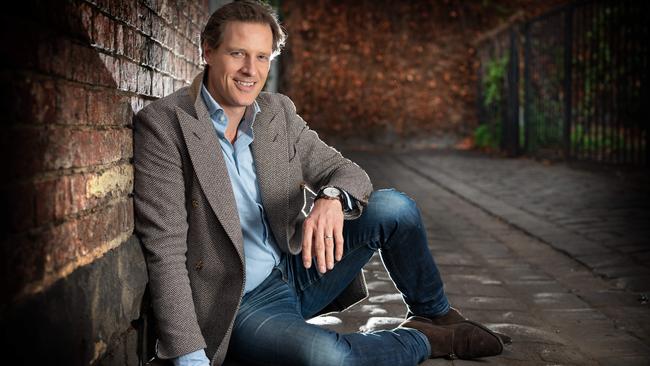
Nick Stone – the ex-footballer who took New York and America by storm when he launched his Australian-style cafes – says working from home has affected business more than Covid-19.
Despite pandemic restrictions ending more than a year ago, employers are struggling to entice staff back to the office full-time and this is a problem for Mr Stone.
Before Covid-19 struck, more than half of his chain of 60 Bluestone Lane cafes – named after coffee-loving Melbourne’s footpaths – were located in office buildings. They, like other CBD hospitality businesses, relied on the constant stream of office workers looking for a caffeine hit or a snack.
But remote and hybrid work arrangements have sparked a level of disruption, greater than the pandemic.
“This thematic is probably more impactful on our business and then Covid because Covid was an immediate shock,” Mr Stone told The Weekend Australian.
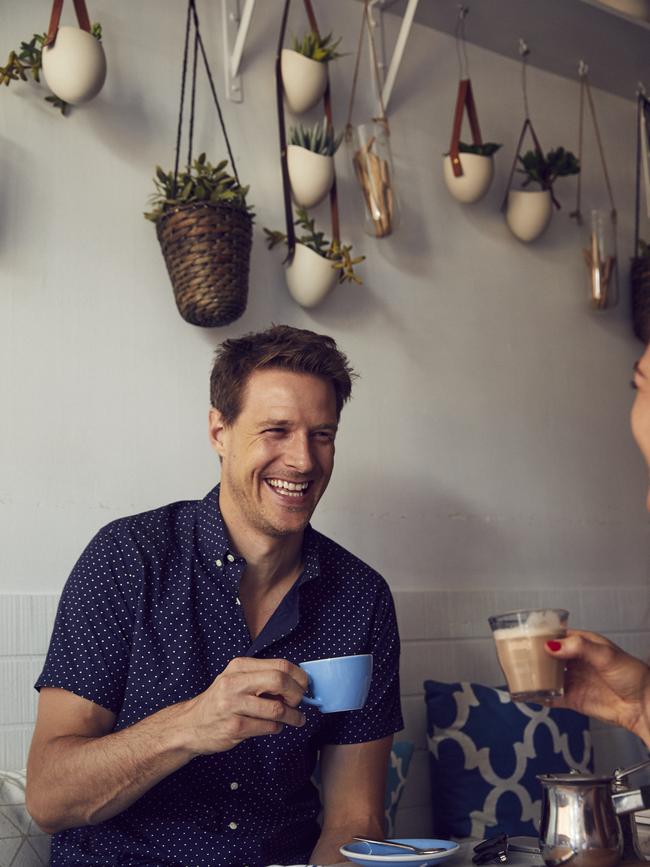
“Employers are really struggling to get people to commit to a more structured return to office, in New York in particular, in America in particular. It really trails Asia and Europe.
“Return to work, I think, is right now stuck at a cap of 55-60 per cent, and it’s over indexed by three days a week where you might get 80 to 100 per cent (of those workers in the office). You basically get next to nothing on Friday, then on Monday, so it’s very interesting, challenging for our business.”
Companies have attempted to address this problem in myriad ways. NAB last year ordered its senior staff back to the office full-time, with chief executive Ross McEwan a staunch advocate of revitalising pandemic-based cafes and other small businesses.
Rival CBA has also dictated how many days employees must spend in the office, despite protests from workers.
Atlassian, which makes software to allow people to work and collaborate anywhere, says such directives are likely to fail and do little to jump-start flatlining productivity. It released a guide this week based on its experience of 1000 days of distributed work.
It’s not an anti-office document – Atlassian is building a new $1.4bn headquarters next to Sydney’s Central Station – but it calls for a more nuanced approach.
Atlassian co-founder and co-chief executive Scott Farquhar said companies that tried to straddle hybrid work arrangements or issue office mandates for some teams were likely to struggle and leave some staff feeling like “second-class citizens”.
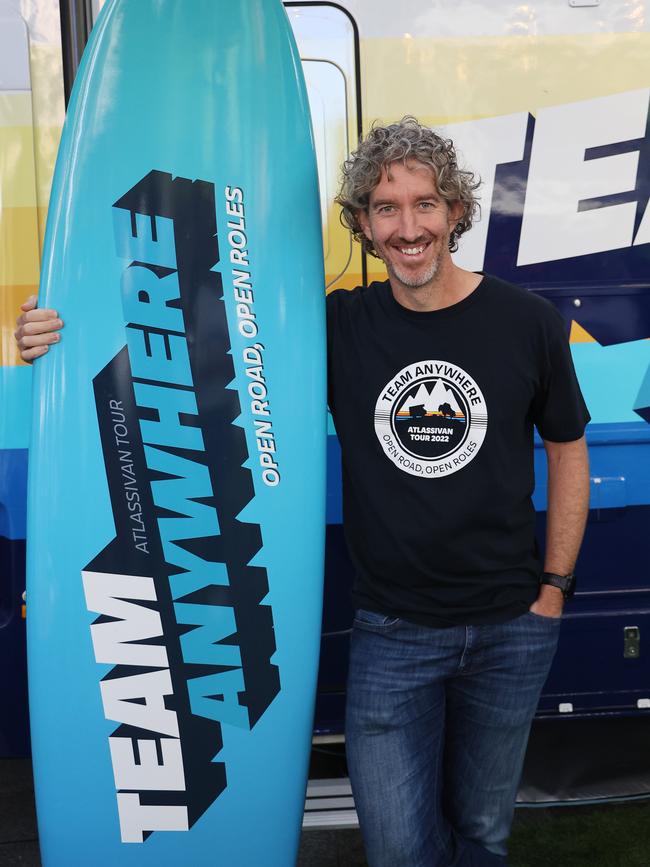
“Those people going into their office to see half their team, it just doesn’t make any sense. If you’ve chosen to come into the office two days a week but we’re not going to tell you which two days — in which case you turn up Monday and you’re one of four people in the office,” Mr Farquhar said.
“You think why did I just travel an hour each way to sit on the same Zoom calls that I could have done at home.”
To this end, he said companies need to be deliberate about how they use an office, saying employees work best when they structure their time around priorities instead of meetings and notifications, which not only made them more efficient but feel less overwhelmed.
“You don’t need an office to do great work. That doesn’t mean offices don’t matter. Our offices serve three purposes: connection, company belonging and a place to get work done.”
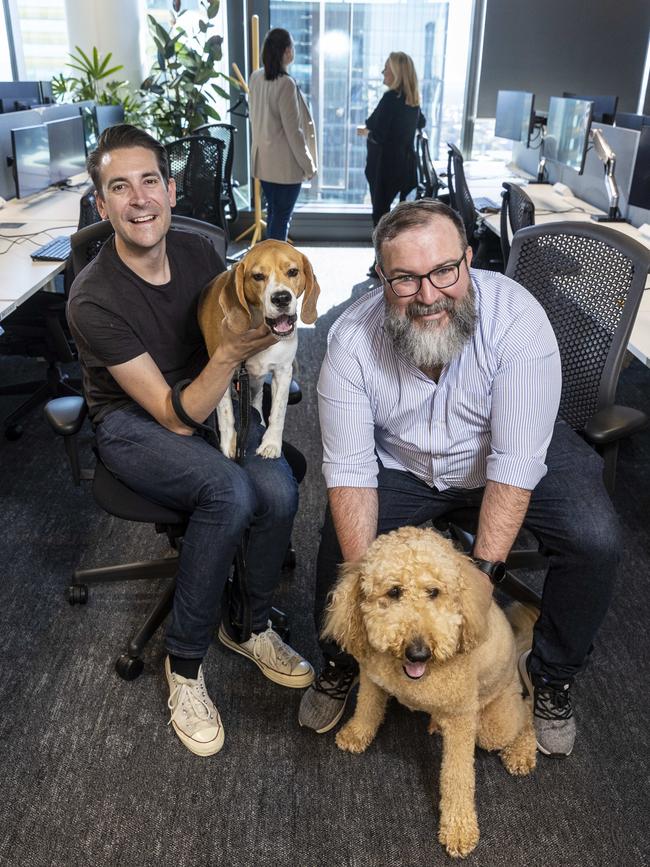
At Amazon, this means making an office feel more like home, with the company launching its dog friendly policy globally. It makes sense, as pet ownership soared during the pandemic and many workers are anxious about leaving their four-legged friends at home or paying for “doggie daycare”.
But bringing pets to work – which is a more carrot than stick approach than what the big banks have adopted – has created a different set of problems: entitlement.
Nowhere is this more evident than in the financial capital of the world, New York, where dogs have taken over, with their owners taking them beyond Central Park walks into drug stores, restaurants and cafes.
“A lot of people expect that they can bring their animal inside (a cafe),” said Mr Stone, who operates several Bluestone Lane cafes in New York.
“We’ve definitely had issues with pets being brought into the store – they’re barking or they’re growling. It’s something that we need to manage, that’s for sure. And it’s been a bit unfair on the team because really they’re just doing their job and abiding by the law.
“It’s not that we have a personal opinion. We follow the health department protocol, and it’s very, very straightforward.”
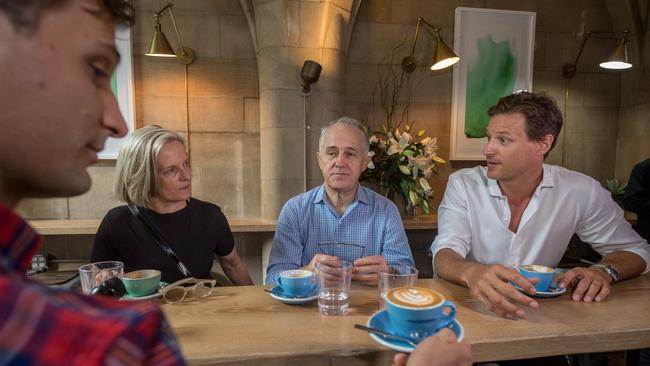
So if the pandemic has sent CBDs to the dogs, what can a small business do?
“For us, all of our growth has been focused on outside the city,” Mr Stone said.
“We’re focused on residential areas, suburbs. We have not opened any stores that are within office lobbies because we don’t feel that it’s stable anymore. Until that changes, we are going to continue to focus on where people live because that seems to have the tailwind.”
Asked if this will leave Bluestone Lane exposed if the tide eventually turns and workers commute back to cities at pre-pandemic levels, Mr Stone believes that will not happen.
“I think there’s tremendous benefits of flexible working, I’m a huge proponent of it and I probably had a reasonably closed view coming from the banking and finance industry where that was in general looked down upon.
“But, the pivot, the adjustment, it doesn’t make it any easier. It’s tough going, really tough going.”




To join the conversation, please log in. Don't have an account? Register
Join the conversation, you are commenting as Logout